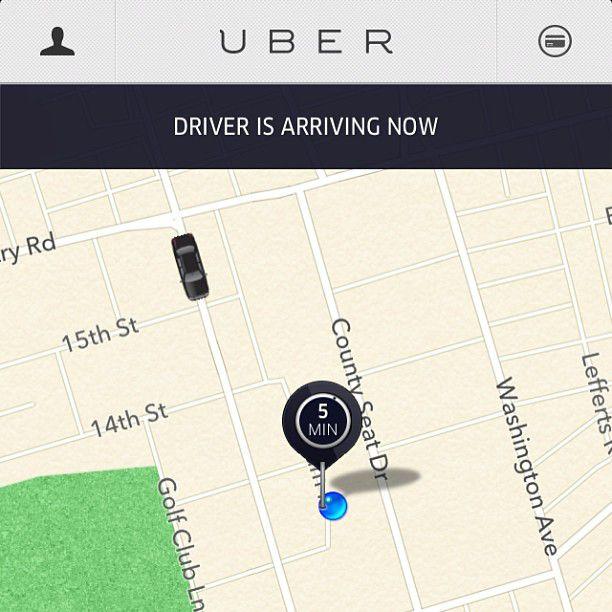As most college students know, sometimes nothing beats the convenience of Uber. Even when less expensive options such as the T and the BU Shuttle are afforded to us, sometimes you just want your own personal driver to show up at your door and take you right where you want to go, especially as the weather just seems to keep on getting colder.
Everyone who’s booked a ride with the app knows that as soon as you’re matched up with a driver, you get to see their rating. Rarely do you see a driver whose rating is below a 4.5. At the end of the ride, you rate the experience you had. But did you know that you have a rating too? It’s pretty secretive, whereas drivers’ ratings are very out in the open. You have to contact customer service and specifically ask for your passenger rating if you want to know. And some people are getting angry about it.
This secretive reviewing process is becoming not so secretive anymore. And while it may make some passengers more prompt and polite, others have raised questions about whether it’s ethical to collect this sort of data so surreptitiously and what the company can do with this information.
“You take a college class, and even though you’re paying, you’re going to get a grade,” Catherine Sandoval, of the California Public Utilities Commission, a regulator of cab services, told The New York Times on Saturday. “You know that’s what you signed up for. Now you’ve being graded as a passenger, a guest, as a customer. The information is stored and shared. There’s little transparency.”
Uber is not the only business where the customer is rated. On Yelp, businesses can post replies to customers who leave negative reviews, and on Lyft, passengers are warned that “a low star rating” may mean longer waiting times or not having a request for a ride accepted. However, Uber does not mention passenger ratings in its user agreement. The company simply vaguely mentioned in a blog post that “an Uber trip should be a good experience for drivers too.”
On a 2014 Reddit post, Uber drivers were invited to share what makes them give a passenger a less than satisfactory rating. Some Uber drivers said they take great pride in giving accurate ratings while others usually haphazardly give out five-star ratings. One driver showed an in-depth rating system with points as insignificant as “+2 if they make me laugh,” while another driver’s criteria included “people who are generally negative.”
“Have riders been given a temporary cooling-off period or barred from using the app for inappropriate or unsafe behavior? Yes,” Uber said in an April 23, 2014 blog post, but that is the most transparent the company has gotten about the two-way rating system.
However, maybe Uber is on to something: a business model that creates a bilateral review system, where services and customers offer mutual opinions to discover problems that weren’t apparent when criticism only came from one end. In the April 2014 blog post, the company mentions that they’re “exploring ways to show the rider’s rating in the app,” and maybe that’s what’s best for the company. Uber drivers are almost customers of Uber just like we are: they’re also getting a service from Uber. The only people who really work full-time for Uber are the people at the corporate office. Ask almost any Uber driver, and you’ll find out that this is a side job, or even just something they do because they enjoy it. Uber drivers want to drive good passengers just like passengers want to have good drivers.
In addition, the secret ratings make sense because this is the driver’s personal car, not a random cab. Even though Uber may seem like just a cab service, it’s their own vehicle. It makes sense that drivers want to be pickier about to whom they offer rides to.
However, with some Uber drivers downrating passengers just because they won’t make small talk on rides, there are some lines that need to be drawn. A passenger shouldn’t get a bad rating just for not wanting to talk to a stranger, and someone who’s naturally not a talkative person shouldn’t have to risk waiting longer for a ride because of that. We’re all paying the same amount of money for the ride in the end.
Perhaps a way to end the controversy would be to publicize passenger ratings and add categories and explanations. If you rank a driver anything less than four stars, Uber will send you an email asking what the problem was. We don’t know if there are systems like this in place for passengers, meaning that if a driver is having a bad day and gives a quiet passenger one star, someone who threw up in the back of an Uber and received the same one star is hypothetically being treated the same way, which is unfair.
Or perhaps, if you really have a problem with it — just take a cab.























































































































Joe • Feb 2, 2015 at 1:02 pm
The rating system is the worst part of uber. The customers can just threaten one star for not putting 5 people in a car with 4 available seat belts or for not driving fast enough. They can use it to force drivers into doing un-safe or illegal things they normally wouldn’t do.
kat • Feb 2, 2015 at 8:23 am
You don’t think riders rate the drivers poorly for stupid reasons like not making small talk? Riders rate the drivers poorly for many random reasons that actually have nothing to do with the driver… they don’t like the fare or they missed a flight because they themselves did not leave the house early enough. At lease the riders don’t lose their job over it.